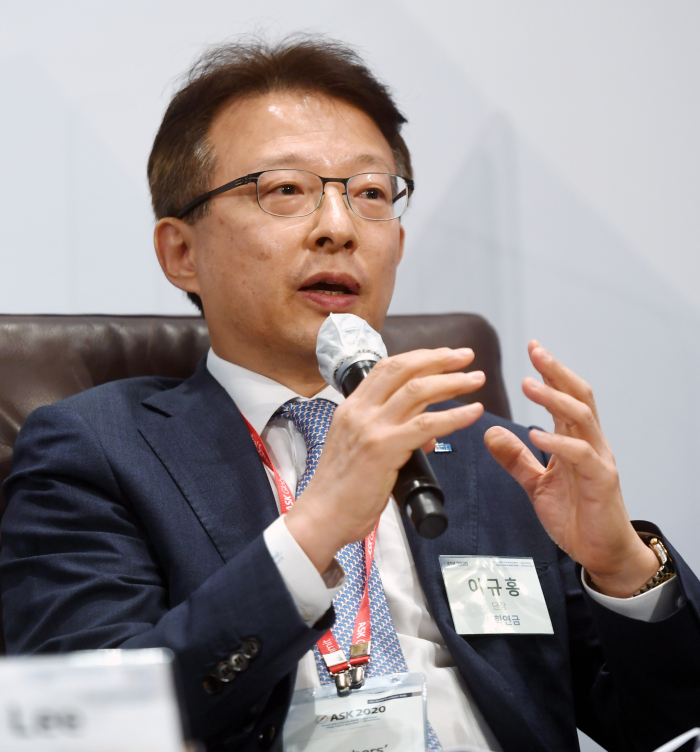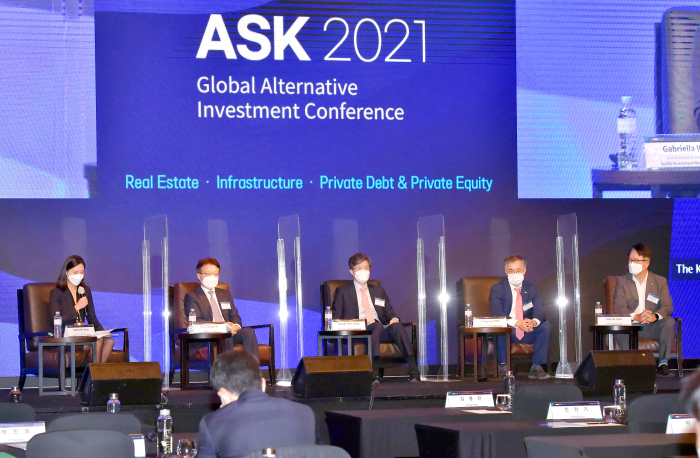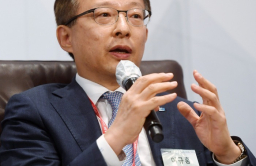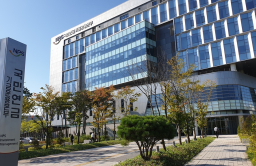-
KOSPI 2812.05 +41.21 +1.49%
-
KOSDAQ 756.23 +6.02 +0.80%
-
KOSPI200 376.54 +6.64 +1.80%
-
USD/KRW 1373 3.00 -0.22%
Teachers' Pension to sharply up direct global stock investment
[Interview] Pension funds
Teachers' Pension to sharply up direct global stock investment
New alternative investments to be focused on infrastructure, real estate in developed countries
By
Nov 04, 2021 (Gmt+09:00)
3
Min read
News+

The Teachers' Pension in South Korea has started direct investment in overseas stock markets this year and will further increase direct management to 40% of its global equities portfolio by next year, said its Chief Investment Officer Lee Kyu-hong.
To make direct stock investments abroad, the retirement fund with 23 trillion won ($19.5 billion) in assets under management will tap various exchange-traded funds listed on overseas stock markets.
Additionally, the pension fund can take advantage of tax exemptions in the US and other developed countries, which exempt public funds from dividend tax on their directly managed equities. That would translate into an additional 2 billion won in cost savings annually.
His remarks followed the National Pension Service's decision last August to reduce outsourcing of foreign bond investments to cut fees even as it plans to nearly double overseas debt holdings.
ALTERNATIVE ASSETS
Last year, Teachers' Pension hardly invested in overseas infrastructure and real estate because of the difficulty of undertaking onsite due diligence following the onset of the COVID-19 pandemic.
So far this year, it has already executed more than 1 trillion won worth of alternative investments abroad.
"At the current valuations, GPs' valuation enhancement capability becomes more important. We will continue to invest through GPs with proven track records," the CIO noted.
By sector, it will look at infrastructure and real estate assets in the US and other developed countries.
"The US will account for 60% of our new overseas alternative investments. There will be plenty of investment opportunities in the infrastructure and real estate sectors in the US and other developed countries," Lee added.
It is aiming to have overseas alternative assets account for 21% of its AUM by end-2025, versus the current 14%.
Under the plan, overseas assets in total will represent more than half of its AUM by 2025 for the first time in its history. Over the period, the proportion of domestic equities will decrease to 14% versus 19%.
Lee said Teachers' Pension is still overweight on domestic assets, considering that South Korea represents just 2% of global stock markets.
For the domestic real estate portfolio, it is targeting office buildings in central business districts and logistics centers in the Seoul metropolitan area.

ESG CONSIDERATION
The Teachers' Pension has discontinued investing in coal-related assets since 2018 and added environmental, social and governance (ESG) factors as an evaluation item for investment outsourcing from the second half of this year.
"The challenge is that large-size GPs are well-prepared for ESG, but small to medium-sized GPs are not there yet," Lee said during an LP CIO panel session of ASK 2021 hosted by The Korea Economic Daily on Oct. 27.
ESG factors have low weighting as an assessment item, but Teachers' Pension will gradually increase its weighting and sophisticate its ESG criteria. It will apply the ESG standards to both traditional and alternative managers as well.
This year, it has put 270 billion won in ESG-themed bonds and another 100 billion won in socially responsible companies at home. Next year, the pension fund will increase its allocation to ESG-themed investments.
"We are investing there not because we are good-hearted, but because they are profitable," Lee said.
Lee's term as CIO was extended by one year until the end of September 2022, following the two consecutive years of strong performance.
The retirement fund for private school teachers and employees in South Korea achieved its highest return in a decade of 11.15% in 2019, followed by an 11.49% return in 2020.
Write to Jae-fu Kim and Jong-woo Kim at hu@hankyung.com
Yeonhee Kim edited this article
More To Read
-
 Pension fundsTeachers' Pension CIO to enter 1-yr extended term
Pension fundsTeachers' Pension CIO to enter 1-yr extended termSep 27, 2021 (Gmt+09:00)
-
 Pension fundsNPS to cut outsourcing of foreign bond investments
Pension fundsNPS to cut outsourcing of foreign bond investmentsAug 25, 2021 (Gmt+09:00)
-
 Pension fundsKorean pension funds log above-benchmark H1 returns
Pension fundsKorean pension funds log above-benchmark H1 returnsAug 09, 2021 (Gmt+09:00)


